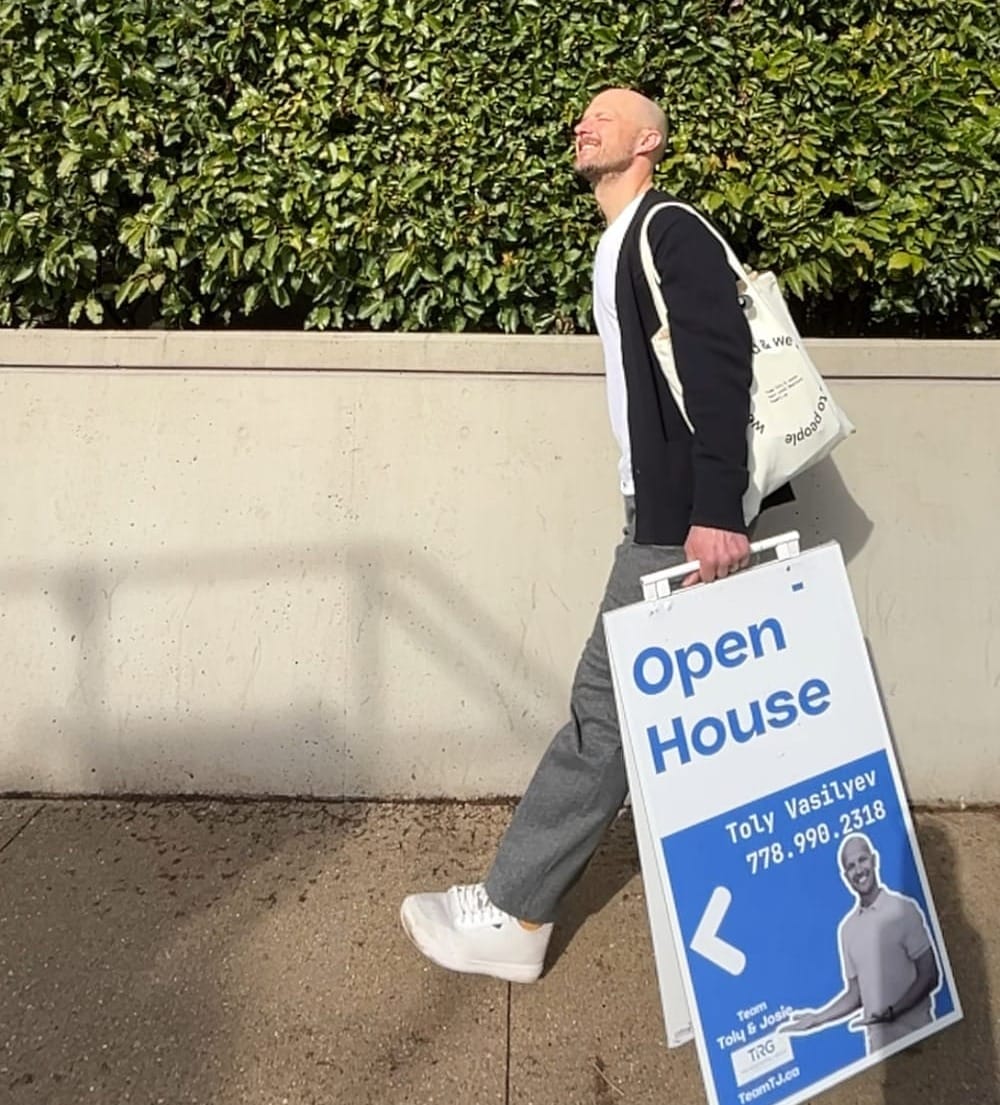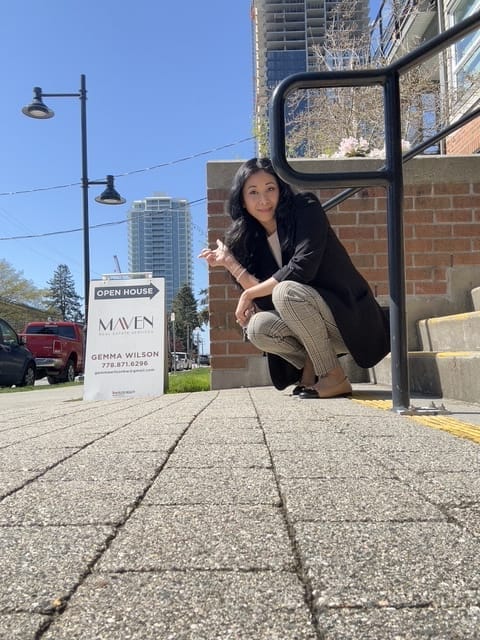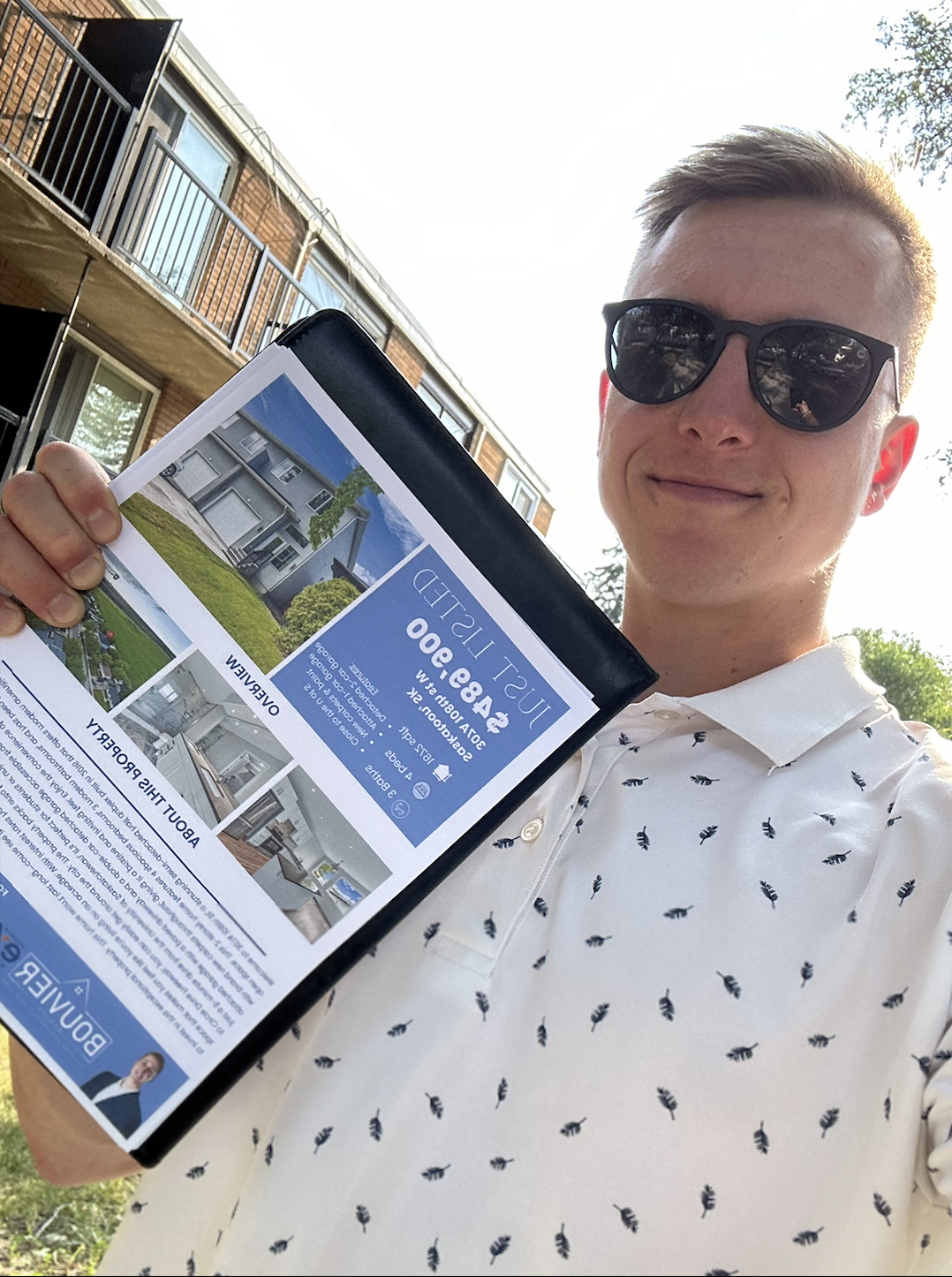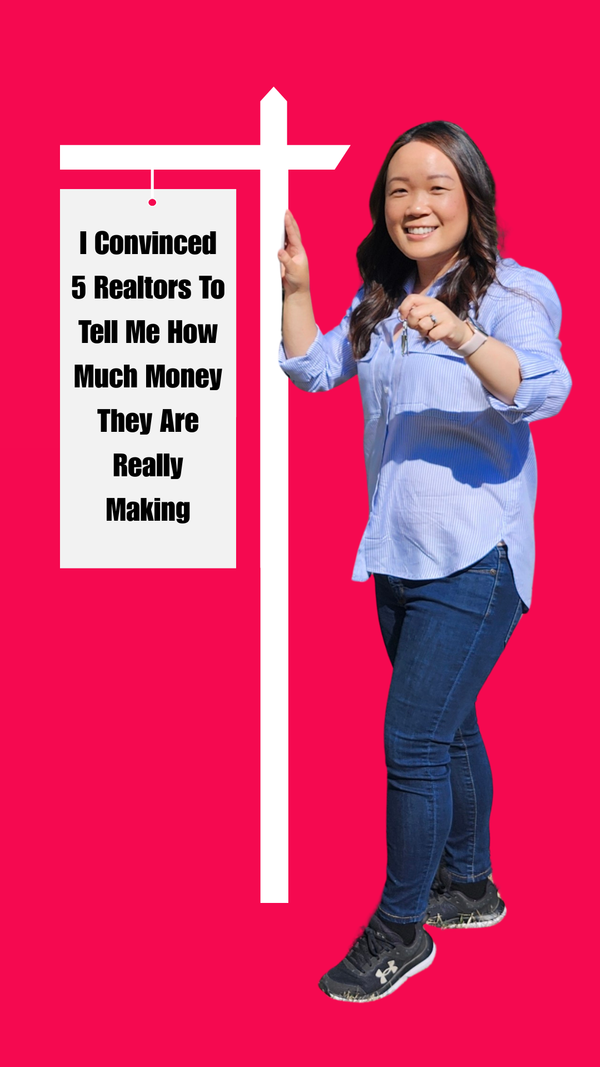Have you ever wondered how much money can real estate agents make? It’s certainly crossed my mind as a real estate investor. You probably know a friend, colleague, or relative who is a real estate agent. It seems like such a popular career choice, but is it worth it?
In my research, I found out that the median realtor commission in Canada is $58,400. On average, new agents may expect to earn between $20,000 to $40,000 in their first year. Agents with more experience under their belt may earn between $50,000 to $100,000 or more per year.
While these numbers may seem enticing, in reality, 51.3% of real estate agents make either zero or one sale per year, according to Wowa.
Given that most people like to keep their earnings private, I leaned on my network to find five realtors who would be willing to reveal their business' finances with me. Fortunately, with the help of several brokers and friends who are very well connected, I managed to convince five realtors across Canada to share with me their revenues and expenses. As a bonus, they provided insights into what it's genuinely like to be a realtor and helpful tips for aspiring realtors.
Knowing that agents' earnings can vary drastically, the real estate agents that I interviewed are all earning six-figures annually. This is likely due to self-selection bias and that the low earners probably didn't want to reveal their finances with me.
Read on to find out these real-life realtors' earnings and financial considerations that you should know about.
Wages of real estate agents across Canada
Since real estate agents are self-employed, they don't earn a salary. Instead, they these realtors are typically commission-based. This means that their income is dependent on the number of properties they help clients buy or sell.
The table below shows the annual wages of real estate agents across the provinces and territories, according to the data from the Government of Canada’s job bank. They used the 2021 Census data and made updates in December 2024.
One of the realtors I interviewed, Taylor, explained to me that 80% of agents do very little business. It’s the top 20% that generate the bulk of the sales.
As a result, many agents choose not to renew their license because it’s costly to hold it without doing any volume. So, even though it’s relatively easy to earn your real estate license, the hard part is building a sustainable career from it.
The national statistics vs. the real estate agents I interviewed
When comparing the statistics with the agents that I interviewed, I made the following observations:
Even though they had varying gross revenues, they claimed business expenses so that they all ended up in the low $100,000 range. Being self-employed, I understand the importance of applying business-related expenses for income tax purposes.
Four out of the five agents are incorporated. With their high earnings, I can see the upside of having a corporation so that you can reap the benefits of paying corporate taxes, which is much lower than sole proprietor taxes.
Their experience ranged from 2 years to 20 years (with the average being 8.5 years), indicating that with the right skills and traits, you can earn a decent income.
Lastly, as you'll see in their profiles, they all have 6-figure incomes, representing those working in Ontario, British Columbia, and Saskatchewan. So, it’s impressive to see that you can find a niche and neighbourhood that you can hone in on and become the go-to agent in that area of focus.
Toly Vasilyev, Vancouver, BC

- Role: Realtor with TRG Realty, Team Toly & Josie
- Industry experience: 8 years
- Clients: First-time home buyers, young professionals, and families in Vancouver. Also, he assists those relocating or upsizing/downsizing.
- Specialty: Condos, townhomes, and detached homes in walkable neighbourhoods such as Kitsilano, Mount Pleasant, and East Vancouver.
Toly was exposed to the construction industry through his parents’ business and initially saw real estate as a way to support them on future projects. However, once he got licensed, he realized how rewarding it was to guide first-time buyers through one of life’s most stressful experiences.
In the first two years, he spent time figuring out where he could fit, eventually discovering his passion for helping clients feel calm and confident in the process. A major milestone was when he and his teammate Josie placed in the top 10% of Vancouver realtors, just by focusing on helping clients.
He currently operates as sole proprietor but is considering incorporating in the future.
Annual revenues:
- $160,000
Annual expenses: $50,000
- He split all commissions 50/50 with his business partner, but his brokerage only takes 3%
- Brokerage desk/office fees: $4,200 + 3% from every commission cheque
- Licensing & association fees: $2,000 to $2,500
- Professional insurance: $500
- Marketing & advertising: $15,000 to $30,000
- Full-time virtual assistant: $1,000 to $2,000/month
- Other expenses include: CRM and marketing tools, client gifts, photography/videography and vehicle-related expenses.
Net income:
- $110,000
Gemma Wilson, Port Coquitlam, BC

- Role: Realtor, PREC, Maven Real Estate Group, Keller Williams Ocean Realty
- Industry experience: 7 years
- Clients: Families of first-time home buyers. Those who are upsizing, relocating, separating, or divorcing.
- Specialty: Selling family-sized homes.
After a brief stint in insurance, Gemma realized it wasn’t the right fit. After reading a book about changing career paths, she discovered that her strengths aligned with a career in real estate. Her strengths were striving in education, creativity, and business operations.
From her first open house, she was hooked. Making a career shift at 40 gave her gradual confidence. She was scared but determined, and she leaned into the challenge. For Gemma, every key handover, whether to first-time buyers or downsizers, is a unique experience.
Today, she runs her business through her own corporation. It's milestone that reflects her growth and resilience in an ever-changing market.
Annual revenues:
- $200,000 to $250,000
Annual expenses: $100,000
- Percentage commission split with brokerage, brokerage desk/office fees, licensing & association fees, professional insurance: $15,000 to $20,000
- Marketing & advertising: $5,000 to $10,000
- Other major expenses (meals & entertainment, transportation, gifts to clients, office expenses): $40,000
Net income:
- $100,000 after factoring in 20% corporate tax and 5% GST.
Jack Bouvier, Saskatoon, SK

- Role: Real estate agent, eXp Realty, Bouvier Real Estate Group
- Industry experience: 2 years
- Clients: Investors
- Specialty: Multi-family and apartment buildings.
Jack entered real estate in 2021 after an engineering internship and working in his father’s manufacturing. Inspired by the book, Rich Dad, Poor Dad, he bought and renovated an off-market property with his dad and brother, which led to wholesale deals and clients through his brother’s painting business.
In his first year, he was splitting his time between real estate and the family businesses. As his business grew, he chose to go full time, driven by a desire for financial independence and wealth-building. Starting solo, Jack built his own network of coaches, mentors and masterminds.
Today, he runs his business through a corporation, reinvesting to sustain growth and help others create financial freedom through real estate.
Annual revenues:
- $324,000
Annual expenses: $210,000
- Percentage commission split with brokerage: 20% brokerage/80% for agents.
- Brokerage desk/office fees: $11,200
- Licensing & association fees: $5,000
- Professional insurance: $3,000
- Marketing & advertising: $40,000
- Other major expenses (meals & entertainment, transportation, gifts to clients, office expenses): $150,000
Net income:
- $100,000
Rosa, ON

- Role: Real estate salesperson, RE/MAX
- Industry experience: 20 years
- Clients: First-time home buyers and new immigrants.
- Specialty: Cottages, waterfront homes, and single-family low-rise properties.
Rosa transitioned into real estate after a decade working in the corporate world, where she felt uninspired and under-appreciated. During her maternity leave, she used the time to complete her real estate license and launch her new career path.
From the beginning, Rosa never earned less in real estate than she had in the corporate world. Even when balancing real estate part-time in the early years, she was able to match her corporate income.
In 2023, she established her Personal Real Estate Corporation (PREC). Although she’s incorporated, she finds that the structure doesn’t make a significant difference in income for herself as a solo agent. For Rosa, a career in real estate has helped her build a business on her own terms and find fulfillment.
Annual revenues:
- $200,000
Annual expenses: $100,000
- Percentage commission split with brokerage: 20% brokerage/80% for agents.
- Brokerage desk/office fees: $410/ year, plus $380/month
- Licensing & association fees: $2,000
- Professional insurance: $500
- Marketing & advertising: $40,000
- Other major expenses (meals & entertainment, events, and client gifts): $20,000
Net income:
- $100,000
*The city has been omitted as the individual requested it to be confidential.
Taylor*, Toronto, ON
- Role: Realtor
- Industry experience: 5 years
- Clients: Those with good income and credit scores within the Greater Toronto Area.
- Specialty: Residential, freehold, condos within the GTA, and cottages/rural properties.
Taylor first began in the mortgage industry in 2007. During their career, they realized clients wanted one trusted advisor to guide them through the full home buying process. This inspired them to become a licensed realtor by 2020.
Having mortgage experience gave Taylor an edge in reading contracts, managing offers, and protecting clients. This helped to accelerate their learning in real estate during a competitive market. In 2021, Taylor achieved a milestone when they helped a couple secure both financing and their first townhouse.
Currently, Taylor operates through a corporation, balancing mortgage and real estate services while reinvesting their earnings for long-term growth.
Annual revenues:
- $120,000
Annual expenses: $20,000
- Percentage commission split with brokerage: 100% for agents. Taylor has to generate leads, and the broker offers minimal support.
- Brokerage desk/office fees: $400 per transaction.
- Licensing & association fees: $2,000
- Professional insurance: RECO license $400, E&O insurance $500
- Marketing & advertising: $0. Relies on word of mouth, repeat clients, and referrals.
- Meals & entertainment, cash back/gifts for clients: $10,000
- Gas: $2,100
- Parking: $95
- Laptop: $1,100
- DocuSign: $360
- Photography: $150 to $200. With a 3D virtual tour: $350 per listing.
- Continuing education: $44 every 2 years.
- Domain and website registration: $50
- Buyer status certificate: $145 per certificate.
- Inter-board listing: $100
- Miscellaneous repair: $50 to replace door handle.
Net income:
- $100,000
*I used a fictitious name as the individual requested to remain anonymous.
Note: the financial data the realtors provided to me are approximate figures and ranges. I used rounded numbers for simplicity. The major business expenses listed is not exhaustive.
How many real estate agents are there in Canada?
To put things into perspective, there are 160,000 real estate brokers, agents, and salespeople, according to CREA. TRREB has over 73,000 members alone.
However, given how competitive the real estate industry has been, it’s not a career for everyone. TRREB experienced an 8% drop in membership renewal from December 2023 to January 2024, as some members are leaving the industry or retiring from it.
How do you get a realtor license?
There are several steps to getting a realtor license in Canada. The agents explained to me that you’ll need to take a real estate training course, pass the licensing exam, and join a brokerage. Then, you’ll need to pay for registration fees, insurance costs, and realtor license fees. Be prepared to pay between $4,000 and $7,500 in education, registration, and insurance as upfront costs.
For example, a realtor license in Toronto, Ontario, would cost you about $2,000 to obtain insurance, license, and association memberships from:
- Canadian Real Estate Association (CREA)
- Real Estate Council of Ontario (RECO)
- Ontario Real Estate Association (OREA)
- Toronto Regional Real Estate Board (TRREB)
Plus, it’s a good idea to set aside another $2,000 to $4,000 in ongoing costs to pay for brokerage fees, marketing and advertising, and administrative expenses.
What financial considerations should new realtors be aware of?
I asked the five experts, and here’s the sound advice they gave me.
Anticipate upfront and ongoing costs
Breaking into the real estate market comes with startup and ongoing costs. Taylor estimated he spent about $6,500 to start selling properties. He further explained that if you join a well-known brokerage that provides a lot of support, training, and leads, they usually charge a 50/50 or 60/40 commission split for beginners. Gemma adds that the main upfront costs are licensing, brokerage fees, and board dues.
Have an emergency fund
In the early days of your career, it can take a while to get the ball rolling. With the Canadian housing market being in a slump this year, Taylor says the competition is tough.
Toly explains, “It can take 6+ months before you close your first deal and earn income.”
Rosa adds that it could take another 2-3 months before your first commission cheque. Given the highs and lows that come with this business, Gemma suggests that having three to six months of living expenses set aside is highly recommended.
Manage your commission cheque wisely
To start on the right foot, you have to track your income and expenses, reinvest your profits, save for taxes, and have money for personal expenses.
Jack says, “When that first big cheque comes in, don’t splurge. Open multiple bank accounts and use a 'Profit First' system. You're building a real business, so treat it like one from day one.”
What skills are needed to become a successful realtor?
Since I’ve been fortunate to interview the top realtors across Canada, here’s the truthful advice they gave me without sugar-coating it.
Communication and people skills
These successful realtors agree that communication and people skills are integral to the job.
Taylor emphasized the importance of attentiveness, saying, “You need to build trust upfront by getting all the information from the get-go. Otherwise, your client will go with someone else.”
Being organized, asking the right questions, and being professional can be the difference between winning and losing a client.
Resilience and discipline
Discipline, patience, and self-motivation are crucial when you’re in a commission-based business, says Toly.
As Gemma says, “If you don’t like hearing 'no,' this business will feel like a grind.”
Agents must be able to handle rejection, work unpredictable hours, and continuously generate leads. Jack sums it up, “No one is going to make you follow up with leads or prospect daily; you need the internal drive to do the hard work when no one is watching.”
Building relationships
Lastly, several agents stated that success requires more than just sales skills. Rosa explains that you can outsource admin tasks, but the ability to connect and build relationships with clients, colleagues, and industry professionals will ultimately help you close the transactions.
Is a career in real estate worth it?
Aside from the potential earnings of real estate agents, it’s essential to understand the upfront and ongoing costs. Remember, you’ll need time to study for your realtor license, pass the licensing exam, join a brokerage, and pay for registration, insurance, and licensing fees.
Consider starting part-time while having a full-time job so that you can grow your business gradually. This way, you don’t have to worry about relying solely on one income source.
Providing solid communication, being self-motivated, and building strong relationships are key qualities that can help you build a successful career.





